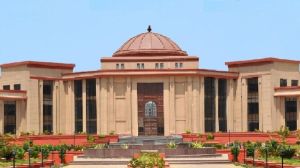Govt sits on decision to hike diesel price
NEW DELHI, JULY 27: With elections round the corner, the government appears to have decided to keep the much-needed hike in diesel prices...

NEW DELHI, JULY 27: With elections round the corner, the government appears to have decided to keep the much-needed hike in diesel prices in abeyance. While global prices have risen by over a fifth since the last hike was made in April, domestic prices of diesel have remained stagnant — in November 1997, as part of the commitment to free the petroleum sector, and to reduce subsidies, the Cabinet had decided that diesel prices would be fixed on an import-parity price.
If this principle of import parity is to be maintained, diesel prices will in fact have to be hiked by a lot more than just 20 per cent. They will have to be hiked by around a third — the adjustment of domestic prices is usually done on the basis of prices prevailing in the previous quarter, and based on this, the hike is around a third. This means that diesel prices, currently around Rs 10.35 per liter would have to be raised to over Rs 13.
For while prices averaged around $ 90 per tonne in the first quarter — from a high of $ 99 pertonne in January to a low of $84 in February — they have averaged around $ 120 in the second quarter. July prices have shot up even more and are averaging around $ 140 for Arab Gulf, and slightly more in the case of Singapore diesel.
Since oil companies such as IOC, HPCL and BPCL get paid on the basis of a pooled international adjusted price, the burden of this delay in hiking diesel prices is primarily being borne by the Oil Pool Account for the time being. Due to the usual delay in adjusting the international price parity for these companies, some part of the burden is also being borne by the oil companies themselves.
But since the November 24, 1997 notification on freeing the oil sector makes it very clear that diesel is not to be subsidised anymore, it is obvious that prices have to be hiked sooner or later.
Based on the hike in global prices since March, and the total domestic consumption of around 40 million tonnes, this means an annual subsidy of Rs 5,000 crore — in the last quarter, thatresults in a subsidy to consumers of Rs 1,250 crore. So even in the extremely unlikely event of oil prices crashing over the next few months, this subsidy will still have to be got from the consumers.



- 01
- 02
- 03
- 04
- 05




























